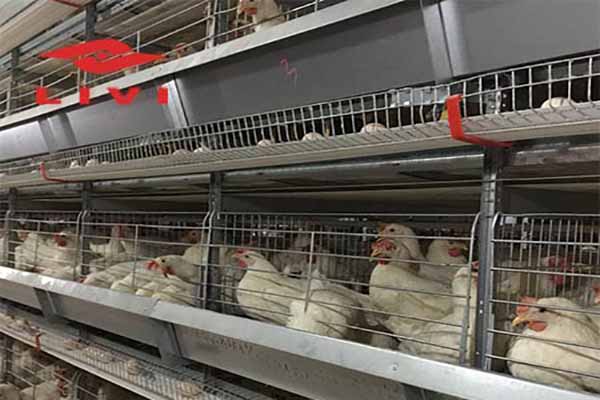Ensuring Compliance of Automated Equipment for Chicken Farms in Tanzania
Time : 2025-04-26
As the demand for poultry products in Tanzania continues to soar, chicken farms are increasingly turning to automated equipment to enhance efficiency and productivity. However, with this technological advancement comes the need for compliance with various regulations and standards. In this article, we’ll dive into the importance of compliance for automated equipment in chicken farms in Tanzania, the challenges faced, and the steps to ensure adherence to these crucial standards.
The Significance of Compliance
Why is Compliance Necessary?
In Tanzania, just like in many other countries, the agriculture sector is governed by stringent regulations to ensure food safety, animal welfare, and environmental protection. Compliance with these regulations is not just a legal requirement but also a reflection of the farm’s commitment to quality and sustainability.
Benefits of Compliance
– Quality Assurance: Compliance ensures that the poultry products meet the highest quality standards, enhancing consumer trust and satisfaction.
– Animal Welfare: Adhering to compliance standards helps in providing a better living environment for the chickens, which in turn improves their health and productivity.
– Environmental Protection: Properly managed automated equipment reduces environmental impact by minimizing waste and emissions.
Challenges in Compliance
Technological Barriers
One of the primary challenges in compliance is the rapid pace of technological advancements. Chicken farms often find it challenging to keep up with the latest technologies and understand their implications for compliance.
Lack of Knowledge
Many farmers, especially those who are small-scale, may lack the necessary knowledge about compliance requirements. This ignorance can lead to non-compliance, which can have severe legal and financial repercussions.
Cost Implications
Implementing and maintaining compliant automated equipment can be expensive. This financial burden often deters farmers from prioritizing compliance.
Steps to Ensure Compliance
1. Stay Informed
The first step to compliance is staying informed about the latest regulations and standards. Farmers should regularly consult government agricultural departments, industry associations, and online resources for updates.
2. Training and Education
Investing in training and education for farm staff is crucial. Regular workshops and seminars can help farmers and their teams understand the compliance requirements and the best practices for implementing automated equipment.
3. Choose the Right Equipment
When selecting automated equipment, it’s important to consider its compliance with local regulations. Look for manufacturers that offer certified and compliant products.
4. Regular Maintenance and Upkeep
Regular maintenance and upkeep of automated equipment are essential to ensure its continued compliance. This includes routine checks, cleaning, and repairs.
5. Documentation and Record Keeping
Maintaining thorough documentation and records of all compliance-related activities is crucial. This documentation can be used for audits and inspections and helps in demonstrating the farm’s commitment to compliance.
Case Studies
Let’s look at a couple of case studies that highlight the importance of compliance in automated chicken farms in Tanzania:
Case Study 1: Chicken Farm A
Chicken Farm A, a medium-sized farm, invested in an automated feeding system. However, due to a lack of knowledge about compliance, they faced legal issues. After attending a compliance workshop, they rectified the issues and implemented a maintenance schedule, which led to improved productivity and no further legal complications.
Case Study 2: Chicken Farm B
Chicken Farm B chose a compliant automated equipment provider and regularly trained their staff. They also established a comprehensive record-keeping system. This proactive approach helped them maintain compliance without any disruptions in operations.
Conclusion
Ensuring compliance of automated equipment for chicken farms in Tanzania is not just about adhering to regulations; it’s about creating a sustainable and profitable business. By staying informed, investing in training, choosing the right equipment, maintaining it regularly, and keeping thorough records, chicken farms can navigate the compliance landscape effectively.












